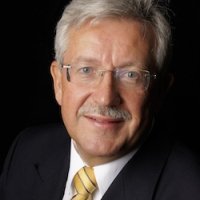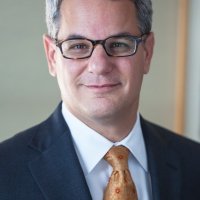Brittle Boundaries: Creating Collective Cybersecurity Defense
Currently, efforts worldwide to defend information systems and respond to cybersecurity incidents are based on a combination of government led actions, isolated regulations, and a limited culture of information sharing between industry, government, and the security research community. The current cybersecurity threat environment can be characterized by independent actions with brittle boundaries. Looking forward, there is a need for government, industry, and the security research community to work collectively together in defending systems and responding to incidents.
In this event, experts discussed the state of cyber threats – especially to critical infrastructure – and options for building a global collective defense.
Selected Quotes
Ambassador Martin Dahinden
“Both the United States and Switzerland have a knowledge based economy. They generate wealth primarily by creating and using knowledge, which means working with and combining data. The digitalization of the economy and society is opening up possibilities beyond the imaginable. And both our countries have the capability and the spirit to cross new frontiers, not only for themselves but for mankind.”
“Cyberspace is everywhere. Despite the importance of national legislation, and national cyber defense action, international cooperation is pivotal for success, as are new approaches.”
Keynote 1: André Kudelski
“One of the big differences today, at least, from experience, the United States has been extremely good at doing things on the large scale, so fundamentally to do things for the mass. Switzerland has been specialized, it has been doing more niche things, so basically having very high quality for niche markets. Now, with technology such as AI and overall digitization, you may have a very personalized approach to the mass, and that is quite a revolutionalization of the system.”
“The hackers have been working faster than the defense. That is also showing that today, generally speaking, on the European continent…. People don’t realize how serious an issue this is. And if you think that about six months is needed to find that there is an intrusion, imagine all the secrets can be stolen in an organization.”
“If you look at how people are perceiving cyber threats: In North America, it is the number one element on the agenda of the CEO. If you compare Western Europe, it is not in the top three.”
Keynote 2: Evan Wolff
“It is like trying to play soccer when you have all the offensive players on one side, and all the defensive players on the other. And in American football, we call them ‘special teams,’ that would be working in the middle. But we have no special teams when it comes to cyber.”
“What we’re moving towards is an offense and defense where we work collectively, and in a much more fluid movement”
Panel Discussion:
Evan Wolff
“Cyber is not a silicon. It’s not a problem that is based on computers. It’s based on humans, as we’ve heard today. And I always think of it as a carbon problem, not a silicon problem.”
Paige Adams
"There is no such thing as zero risk, so there is no such thing as 100 percent prevention, there is going to be some risk element. So we really need to think about the end to end, the response, the resilience piece”
“If you have a CISO, it’s been shown that the cost per record of a data breach is decreased by about $4 per record on average, at least in the US. But those things add up.”
André Kudelski
“Cybercrime has no border. Every country is your neighbor.”
“The one that is attacking needs to just be successful once. The one that is defending needs to be successful every day, and that is an asymmetry that is not so easy to handle.”
This event is held in co-operation with the Embassy of Switzerland in the United States and the Europa Institut at the University of Zurich.
Introductions



Director, Europa Institut at the University of Zurich
Keynote Speakers

Partner, Crowell & Moring
Moderator

Panelists

Partner, Crowell & Moring
Hosted By

Science and Technology Innovation Program
The Science and Technology Innovation Program (STIP) serves as the bridge between technologists, policymakers, industry, and global stakeholders. Read more


Digital Futures Project
Less and less of life, war and business takes place offline. More and more, policy is transacted in a space poorly understood by traditional legal and political authorities. The Digital Futures Project is a map to constraints and opportunities generated by the innovations around the corner - a resource for policymakers navigating a world they didn’t build. Read more
